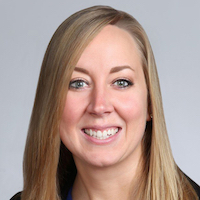KesselRun Corporate Travel Solutions vice president of client services Krissy Herman shares observations from the current sourcing season and what corporate hotel program managers should expect next year.
This year is undeniably a very peculiar one for hotel sourcing. With business travel down, hotel rates fluctuating and uncertainties ahead in 2021, both corporate buyers and hotels face myriad questions and challenges without precedent. But 2021 hotel sourcing, approached correctly, may also offer unprecedented opportunity to transform the process and improve results.
For next year’s programs, a dual-rate load strategy is the foremost option embraced by both major hotel brands and corporate clients.
Generally, customers with existing hotel programs and national account relationships with brands are receiving offers to roll over 2020 rates through the coming year. However, with rates in some locations plummeting, a static rate agreed to back in 2019 may no longer be the best available rate. A dual-rate load strategy solves this dilemma. With the static rate set as a cap, loading an additional dynamic discount that takes effect when best available rates come in lower ensures that corporate clients are truly receiving the lowest rate available. Many customers are jumping at this option and requesting dual-rate loads if hotels hadn’t already offered them.
A plan to continue and protect previously agreed discounts while also providing dynamic pricing reflects the partnership that makes many hotel relationships successful; it is a workaround to the pandemic-inflicted difficulties on both sides. Looking ahead to RFPs in the coming years, many customers will want to maintain a dual-rate load model guaranteeing best available rates.

Krissy Herman, KesselRun Corporate Travel Solutions vice president of client services
Some customers were set on going out to bid for 2021 hotel rates regardless of change. The results depend on the market and how much volume corporations can put on the table. However, given the major brands’ primary policy to avoid offering new discounts (emphasizing maintenance instead), and the decimating effect the pandemic has had on hotel employment at both the corporate and property level, in many cases the usual respondents are not available. Anyone familiar with hotel RFPs knows the usual response challenges, particularly in cases of staff turnover or property changes. Those are significantly magnified this year. In some cases, bidders ignoring this reality may not be met with goodwill.
Whichever strategy buyers choose, they’ll still need to work with hoteliers to address their needs and understand Covid-related cleaning procedures. Now, more than ever, strong partnerships are critical.
The 2021 RFP offers greater opportunities for industry disruptors whose new technology was already at work changing the traditional process. Hotel rebooking tool Tripbam was already edging into the RFP market with solutions including last room availability benchmarking and other intelligence. With significant rate fluidity possible, Tripbam and tools like it may become more valuable for clients.
Providers of hotel RFP tools operating on a more traditional model, meanwhile, have been working with hotel brands to facilitate the roll-over/dual rate load options. Considering those roll-overs, some clients may entirely skip the RFP this year and have no use for traditional RFP tools provided by Lanyon (now Cvent) and Sabre. This may represent the beginning of a seismic shift in sourcing, opening avenues for newer competitors.
No one in the travel industry has a good sense of next year’s supply and demand. Right now, hotel companies are holding capacity back as demand remains low. Many corporations are predicting some recovery in their business travel by mid-2021, but capacity does not instantly reappear with demand. Reopening a hotel means restaffing and retraining. The process could take months. In the interim, other hotels in the market could benefit. For several months in 2021, while demand and capacity start to balance, we are likely to see hotel rates move higher across the board.
Corporations need to be prepared for this possibility, particularly when budgeting.
Whether 2021 hotel programs wind up consisting of new properties that reached out for business, existing properties from the 2020 program undertaking dual-rate loads, or a combination, buyers should be prepared to change their programs as needed based on traveler experiences. Some corporations conduct checks on hotels’ Covid procedures through traveler surveys and, in some cases, physical checks. Hotel brands require their properties to meet certain standards; that may make some travelers more comfortable with those properties.
Corporations should make sure to raise any Covid-standard questions with hotel partners during this year’s process. Listening to travelers is always important for business travel management but for this coming year, program managers should make sure travelers know the avenues to communicate. Travelers should feel confident in their concerns being heard and employers vetting hotels and prioritizing safety.
Related
• Op Ed: Steve Reynolds On Finding The Right Mix Of Hotel Discounts
• Hotel Cleanliness: Know Before You Book, And Maybe While You’re There
• Op Ed: Louise Miller On The Complexities Of Hotel Content
• Op Ed: John Harvey On The Future Of Business Travel Demand
• Op Ed: Scott Gillespie On The Surprisingly Strong Case For Meeting In Person
• Lodging 2017: Time For A New Approach?